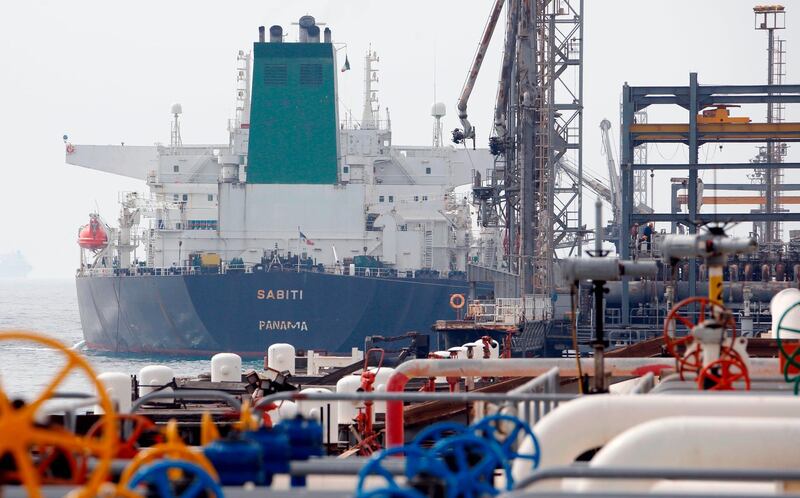Iran, whose economy is increasingly being squeezed by the United States, has threatened to veto any decisions by Opec that will hurt its national interests at the organisation’s coming sub-committee meeting in Algiers.
Opec is set to convene in the Algerian capital on September 24 to discuss the dynamics of the oil markets. Oil prices have risen close to $80 per barrel this year, supported by earlier production cuts as well as in anticipation of US sanctions against Iran.
Tehran is opposed to Opec and sovereign producers outside the group led by Russia deciding to increase production – which could lower oil prices – and possibly allocate output quotas at a time when its own capacity to export is restricted by sanctions.
"Iran will veto any decision that threatens our national interests. Without a moment of doubt. Veto means that the decision is not legal. If vetoed, that decision is illegal," Iranian Petroleum Minister Bijan Zanganeh told state petroleum news agency Shana.
Mr Zanganeh, who will not be attending the meeting in Algiers, where Iran will be represented by its Opec governor, called out the group and its allies for allowing political interference from the Americans.
US President Donald Trump has repeatedly accused Opec of manipulating prices to remain high this year. On Thursday, he accused the group again of nudging prices ahead of its meeting in Algeria.
After a three-year slump, the price of Brent has averaged a comfortable $72/b for much of the year, after Opec and allies managed to successfully draw down five-year high inventory levels that had led to a glut in the oil markets.
Following increased US pressure, the group reversed an earlier pact to slash approximately 1.8 million barrels per day and had begun to substantially add supply back to the market.
Saudi Arabia and allies have ramped production by almost 350,000 bpd since January.
_______
Read more:
Sri Lanka stops import of Iranian oil ahead of sanctions
Trade wars and falling Iran exports to impact supply and demand, says Opec
India's Iran oil purchases to fade ahead of US sanctions
________
On Tuesday, Opec secretary general Mohammed Barkindo told an audience of energy traders in the UAE's northern emirate of Fujairah that Iran, a founding member of Opec, was an important part of the organisation.
“When you have major producers facing supply challenges it’s a concern not only for Opec but also for the consuming countries,” he told the audience. “We will continue to work with all parties, Iran is a very important player and exporter and so are other countries,” he added.
Iran has seen buyers slash imports in anticipation of US snapback sanctions targeting its energy industry, which will come into force on November 4. Analysts are predicting Iranian exports may fall by as much as 1.5 million bpd.
Countries that had depended on Iranian imports for refining such as Japan have loaded their last cargoes, while South Korean and Indian refiners have already cut back. On Tuesday, Sri Lanka's Petroleum Resources Development minister Arjuna Ranatunga said the country had completely halted its oil imports from Iran. The Islamic Republic had been almost the sole supplier for crude to the South Asian state, which was planning to upgrade its sole refinery with Iranian help.
The retrenchment of Iranian oil buyers further threatens the country's ability to collect foreign exchange which in turn impacts its purchasing power and trading position. The Iranian rial has lost more than 80 per cent of its value against US dollar since the start of the year due to mounting US pressure and re-imposition of American sanctions.
Mr Zanganeh declined to comment on how Iran, which continues to ship crude to select buyers using its own tanker facilities was getting its oil to market.
“I [will] not reveal the client, the destination, the countries, how [we] transfer the oil to the tanker, how to solve the insurance problem. I do not know anything,” he said.







